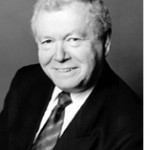By Rabbi Dow Marmur

JERUSALEM–Whether you call it intifada or something else, there’s unrest in Israel, not only in Jerusalem and the West Bank but also elsewhere in the country. Though there’s nothing new in this in the history of the state, it’s nevertheless a cause for deep concern, much speculation as to the reasons for it and quests for possible remedies. By all accounts, the new outburst of terrorism is a reflection of Palestinian frustration. Here’re some possible causes. They don’t tell the whole story, but then perhaps nothing does.
- The Palestinian issue has virtually no place on the international agenda. The speech by Mahmoud Abbas, the president of the Palestinian Authority, made no impact and deserved even less; the raising of the Palestinian flag wasn’t much more than an empty gesture. President Obama didn’t even mention the issue in his UN speech, and the focus of Prime Minister Netanyahu’s address was, as expected, Iran, not peace with the Palestinians. But he did reiterate his readiness to meet and talk; I hope he meant it.
- Even the Arab states don’t seem to be very concerned with the issue. They make occasional routine statements but there’s little to suggest that they’re putting much pressure on either side to help create a Palestinian state.
- Though there’re 13 Arab members of the current Knesset, united in one bloc and representing much of Israel’s Arab population, they don’t seem to make as much of an impact as they should and could had they been more concerned with political alliances and deals to advance their cause than with dramatic and largely meaningless gestures.
- And there isn’t much support for a Palestinian state among Israel’s Jewish population. A growing number seem to assume that the present situation will go on indefinitely. Perhaps many Palestinians who’re getting on with whatever they’re doing have also come to accept this. Realism or resignation?
- The new element is the religious dimension with the Temple Mount as its focus. However many Israeli politicians say that their government doesn’t want to change the status quo with regard to the Jordanian stewardship and Palestinian access to the El Aqsa Mosque (the holy place for all Muslims on the Temple Mount), Palestinians in their frustration have seen here an opportunity to alert the world over the heads of the politicians by styling themselves as victims that seek and deserve help.
They take advantage of the stance of Jewish fanatics who are fixated on the Temple Mount by combining Messianic ideas with nationalist aspirations. In an effort to calm Palestinian fears, Netanyahu is trying to curb Jewish access to the site, whether or not this is according to his wishes and convictions.
Once religion is brought in, zealotry and fanaticism follow. That’s probably why young Palestinians are prepared to risk and often lose their lives by throwing stones at vehicles with Jewish passengers, and stabbing civilians, soldiers and police officers.
The above is by no means a full picture and not an impartial one. It’s only an impression of what I see happening around me as I sit in Jerusalem within walking distance of some of the events the world hears, sees and reads about daily.
Israeli authorities tell us that they’ll make an end to this as they’ve ended previous unrests. We hope and pray that the cost won’t be too high on both sides and that, despite current indications to the contrary, peace for which we pray and hope is still possible.
*
Rabbi Marmur, now residing in Jerusalem, is spiritual leader emeritus of Holy Blossom Temple in Toronto. He may be contacted via dow.marmur@sdjewishworld.com
No. It is not “frustration” and despair that hatches Jihadi terror, but the other way around: it is fanatic hatred coupled with burning hope, that brings it about. The irrational belief that the Jews are weak, and are ready to give in their land, and truth, and their faith and everything they live for, in face of inhumane slaughter, and would not stand up to death-loving suicide-knifing zealots, that had been produced by generations-long murderous hatefulness injected into their minds, from cradle to grave.
Gadi Eshel, Nofit, Israel